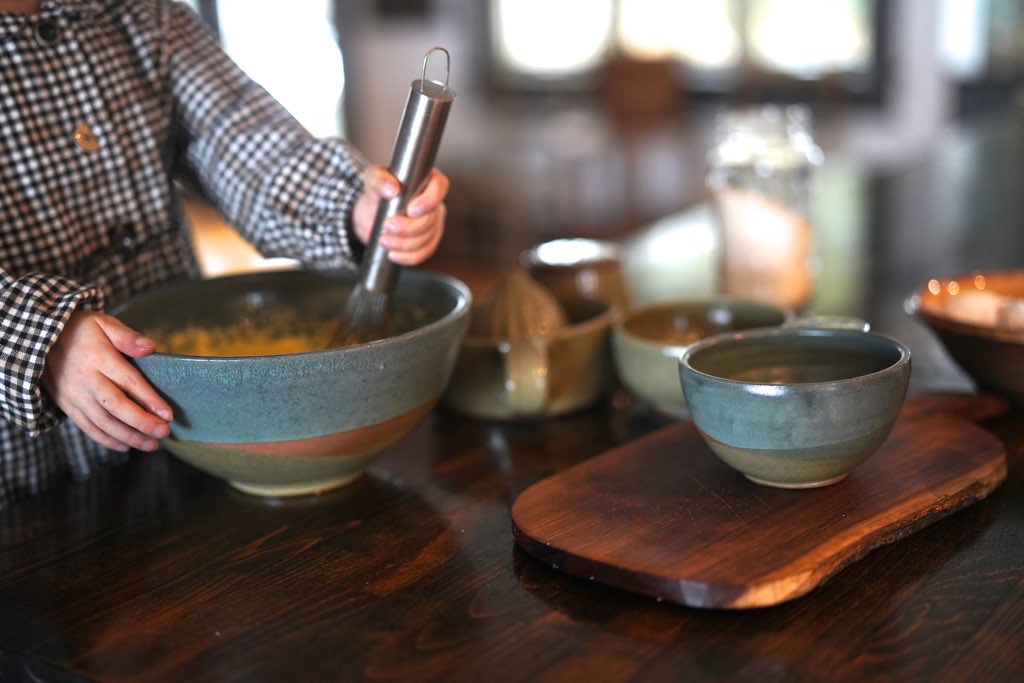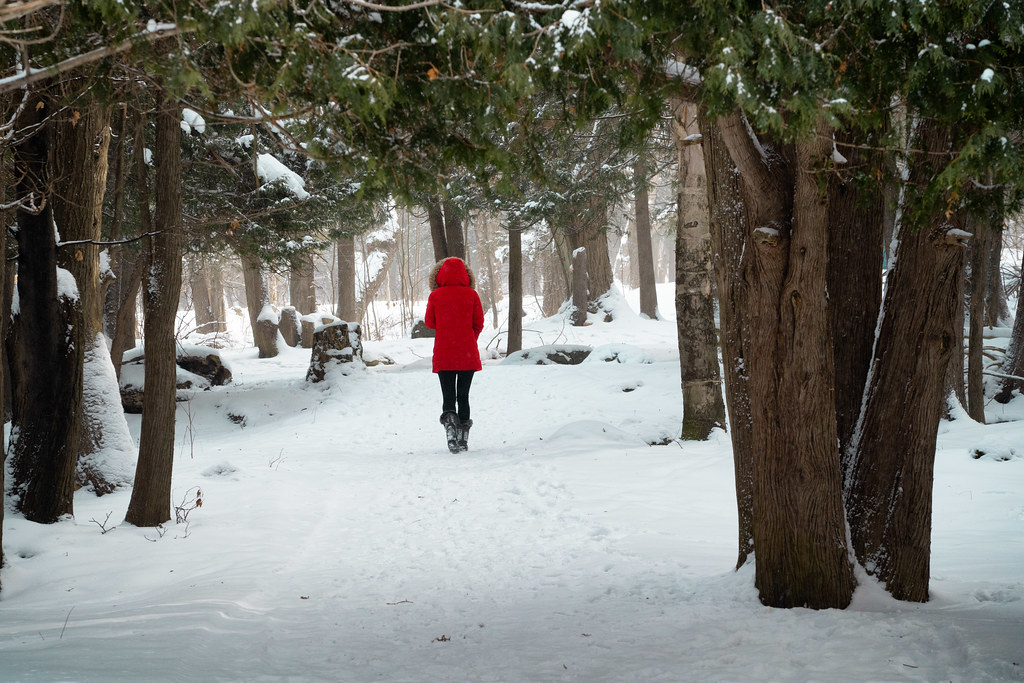Have you ever wondered why God has you where you are? What His greater purpose is for the place you call home? Despite being part of one of the most mobile societies in history, we find it easy to feel stuck where we are. Maybe it’s because of a recent move or because you’re still in the same place you’ve been for years. Many of us just aren’t where we thought we’d be or doing what we thought we’d do with our lives. Sometimes we may wonder if God knows what He’s doing. Shauna Pilgreen understands the importance of living with intention, or living sent where you are, right now, right where God has you. It is a grace to welcome Shauna to the farm’s front porch today…
I didn’t learn how to live sent in the city. The concept was first put into practice, again and again, in our town of six traffic lights.
Two of the lights were on the Georgia highway that ran through.
The other four were around the city square. It was a small town and a good place to grow up.
My family of five—father, mother, two younger sisters, and myself—were the outsiders in this family-rooted town. We stood out because we didn’t farm. We stood out because our grandmas, grandpas, aunts, uncles, cousins, and second cousins didn’t all live within a twenty-mile radius of the town.
But this didn’t keep our community from inviting us into their family gatherings. To gather at their table and let us share their grandparents.
And the farmers gave generously of their corn, pecans, peas, beans, cantaloupes, and watermelons.
My dad gave of himself as he officiated weddings, visited those in the hospital, and spoke at funerals.
This town of six traffic lights wanted a pastor, and we wanted an extended family.
Being new to a place and not having ties afforded us a pair of fresh eyes.

Our Favorite Farmhouse #FreeTrade Resource: The Grace Crafted Home

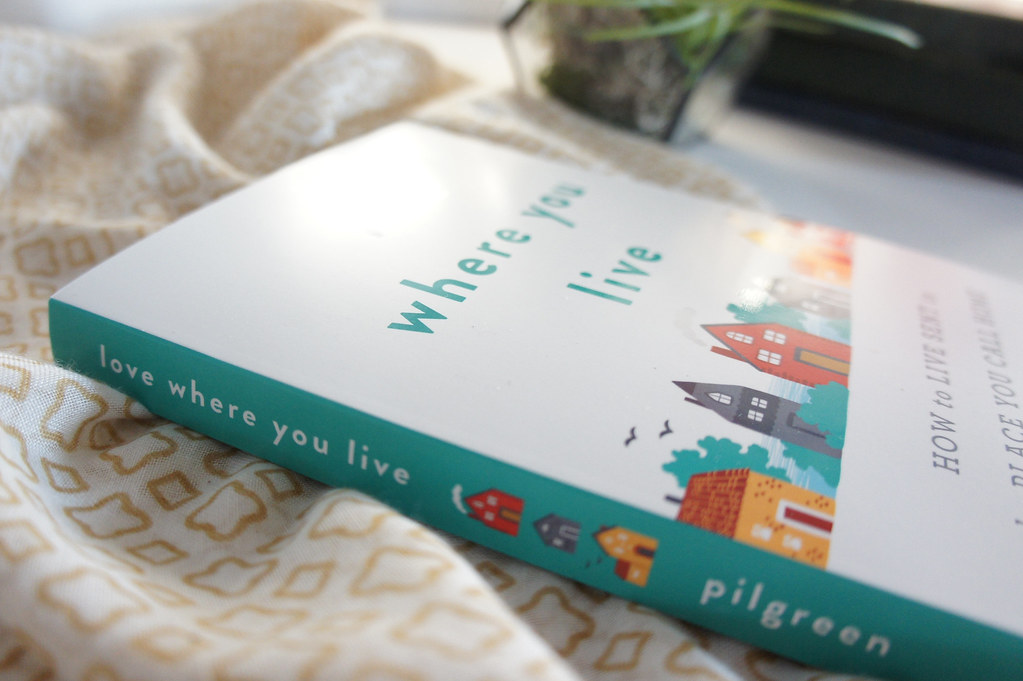
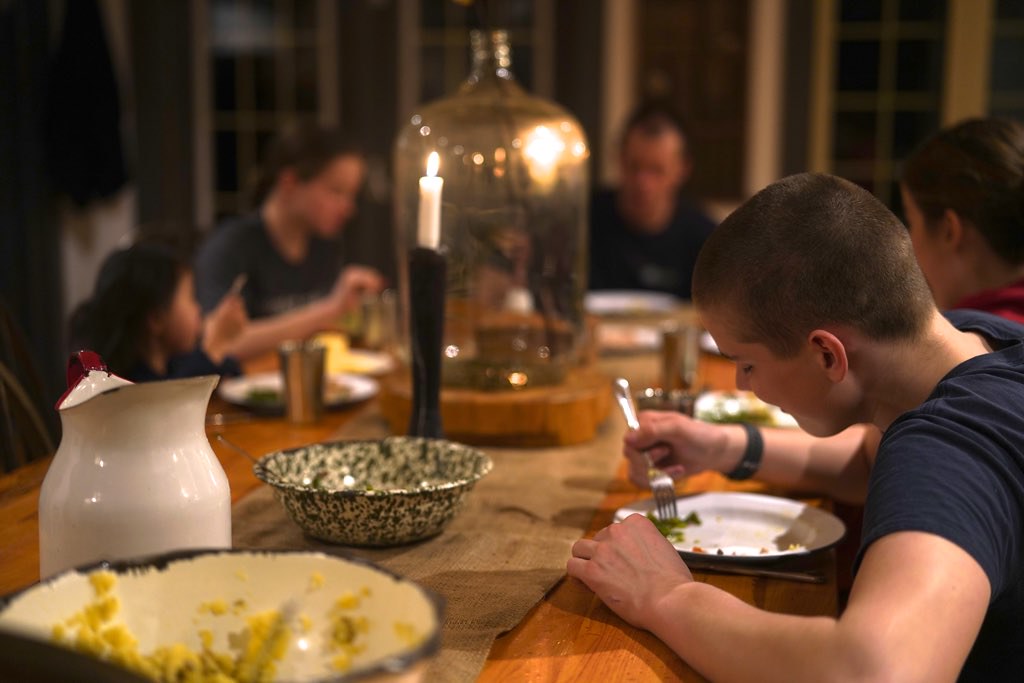
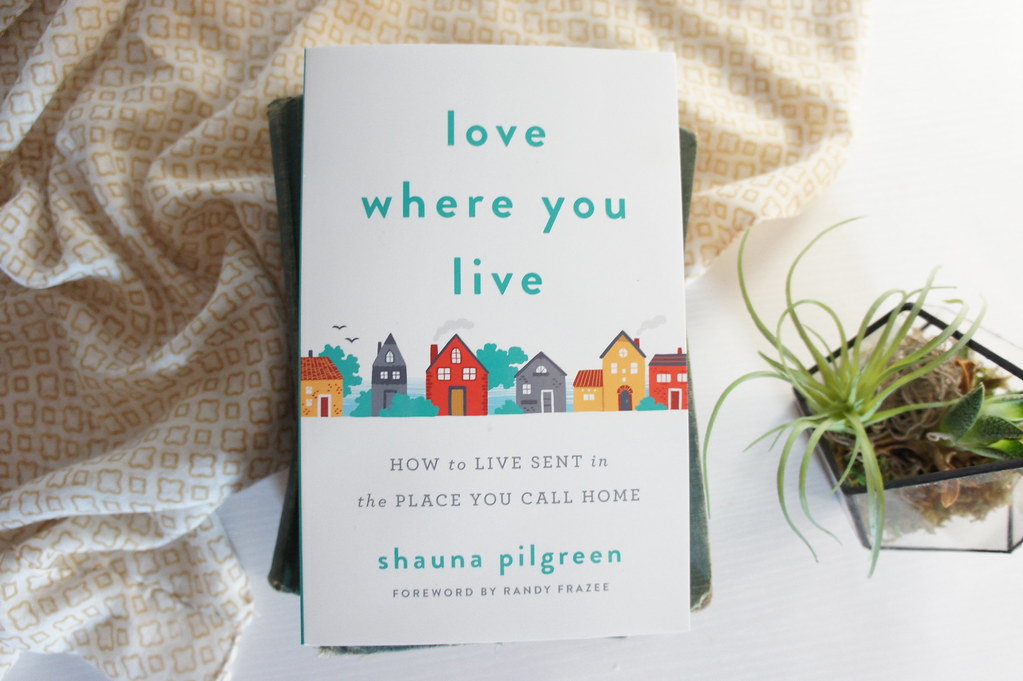
And we could see differently with this set of eyes and no family around to keep our calendar full of dinners and celebrations.
We could plead the fifth as newcomers within a certain time period (which is determined by the culture in which one lives).
And we were considered new for a number of years. I mean, who knew as a fourth-grader wearing her first cheerleading outfit to Football Friday that a pair of bloomers was required? And who knew that a certain boy was your friend’s cousin when you kind of mentioned to her that you thought he was cute? Okay, I pleaded the fifth a lot.
My mother was my first teacher in living sent.I thought I was just living my childhood.
Once, in grade school, the girls in their ballet outfits asked me where I was going. I didn’t dare tell them the nursing home. I played it cool with my bag of Funyuns and Crystal Pepsi in my hands at the Stop-n-Shop.
“I don’t know—something fun—not sure though—see ya.”
But I knew it was the nursing home we were going to.
My sisters and I did “normal kid activities” like basketball and piano lessons too. But we also routinely walked up the steps and into the sterile and sweet community of elderly people who beamed to have us there. We would practice our piano before this audience and get rave reviews.
Living sent also took us to the other side of the train tracks.Several girls helped with childcare at our church and they would sometimes need a ride home. They didn’t live like we lived and we didn’t live like they lived.
They raised pigs in their backyard and would graduate at the very top of their classes. Brilliant girls. Brilliant. We attempted to breed English bulldogs in our backyard and strived to have the smarts these girls did. We tried. We really tried.
Living sent looked like sitting around our dining room table with missionaries and pastors who were in town for revival services.
Miss Margaret would teach us the songs she would sing to the children of Liberia about lifting Jesus higher and stomping Satan lower. With hand and foot motions, of course. Other missionaries would share what seemed like the stuff movies are made of about how they were persecuted and robbed and cursed.
Then their faces would shine like the sun as they told story after story of going into the dark places and sharing Jesus with the witch doctors and witnessing healing and life transformation.
Stories of starting churches and growing food and learning from the locals. I could see it in their eyes. My soul was drawn to what they were experiencing in Africa. They weren’t relaxing in the status quo.
Even as a child, I had seen enough to make a decision about my future. America wasn’t their home anymore.
They were living sent in other parts of the world, and I wanted to as well.
It was in the sports arena where my pastor-dad lived sent; he became chaplain for a couple of athletic teams. In the town of six traffic lights, race was a difference maker. Skin color made a difference in where one lived and went to school, church, and work, but it didn’t matter as much on the sports field.
Dad exchanged the pulpit and his preacher voice for locker rooms and pep talks—all to build relationships across racial lines that weren’t happening in many other places in town on Friday nights.
We didn’t have traditions in this new place. We would create them.
My family wasn’t tied down to everyone else’s schedules. We didn’t know the backstory. We didn’t know the gossip (yet). We hadn’t figured out who was related to whom. We hadn’t learned that the beach was the vacation spot and that the size of Christmas depended upon how good the crops were that year.
We just didn’t know. We were new to the town of six traffic lights.
Abraham was new to the town of Canaan. In Hebrews 11:8–10 we read,
“By faith Abraham, when called to go to a place he would later receive as his inheritance, obeyed and went, even though he did not know where he was going. By faith he made his home in the promised land like a stranger in a foreign country; he lived in tents, as did Isaac and Jacob, who were heirs with him of the same promise. For he was looking forward to the city with foundations, whose architect and builder is God. (NIV)
God told him to leave his country, his people, and his family and go “to the land that I will show you.”
How’s that for vagueness? That makes the town of six traffic lights sound absolutely specific.
When God calls, faith should be our response.
This is true even when the call from God is a new way of looking at the world right where we are.
If Abraham had stayed in the place that was familiar, he wouldn’t have exercised the same amount of faith it took to move.
Whenever we are called to leave the familiar for the unknown and uncertain, our faith is tested.
And faith is not what you can see but what you can’t see.
Faith is the heart response. Obedience is the physical response.
Faith says, “Yes, God.” Obedience is one foot, then another.
We follow not because of where He’s leading or who else will be there or what we can expect but because it’s God and He alone is worth following.
Raised in rural Georgia Shauna Pilgreen is the author of Love Where You Live, and now finds herself immersed daily in the reality of doing life in a global city. She and her husband, Ben, started Epic Church in the heart of San Francisco in 2010 and have been “living sent” ever since. Shauna is a coach, speaker, and writer to ministry families across the country. She is the mother of three boys and an adopted daughter from India.
In her new book Love Where You Live: How to Live Sent in the Place You Call Home, Shauna assures us with enthusiasm and contagious joy, that God does have a plan and a purpose for you—right where you are. In fact, He sent you there.
[Our humble thanks to Baker for their partnership in today’s devotion ]


